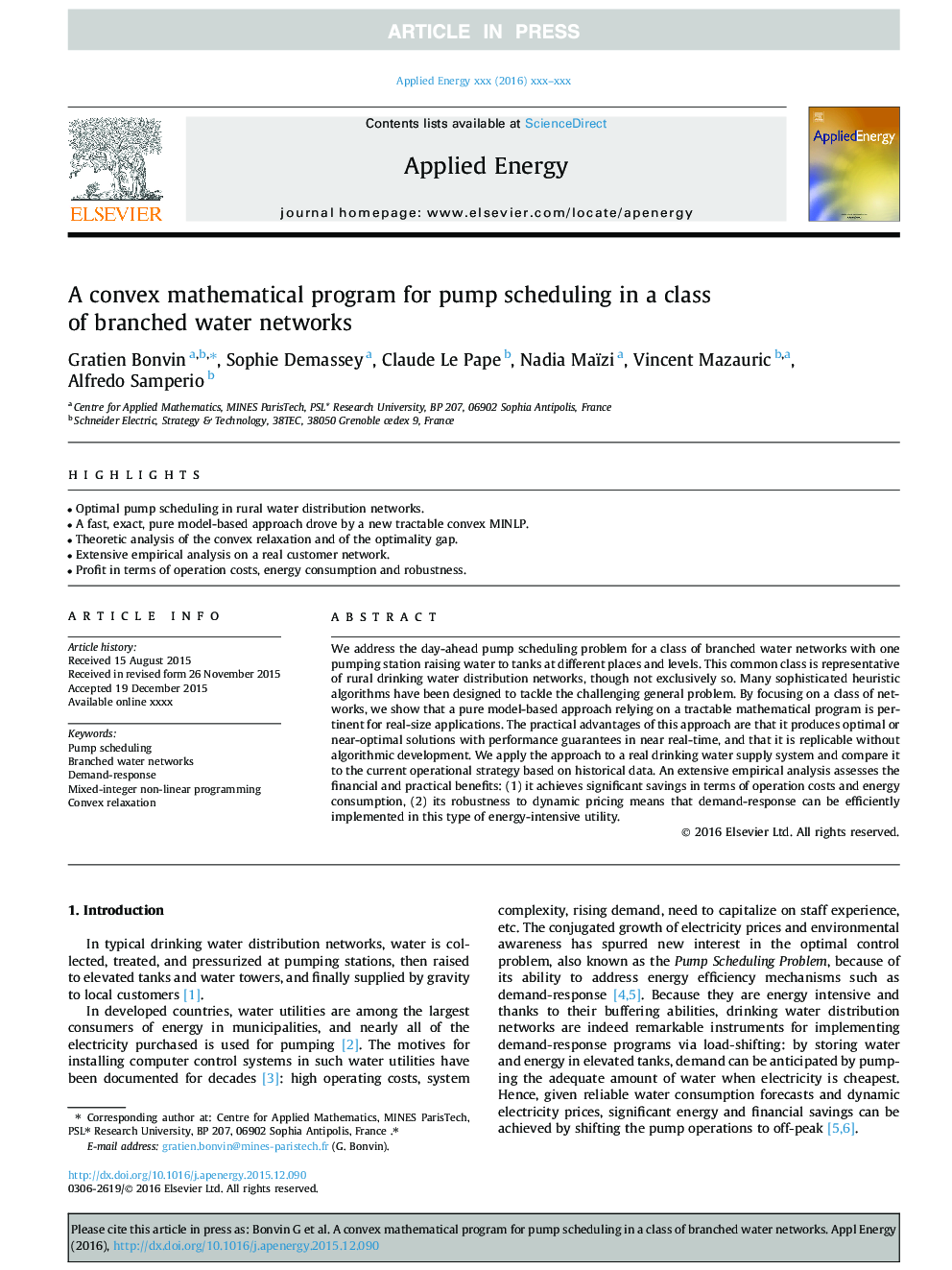| Article ID | Journal | Published Year | Pages | File Type |
|---|---|---|---|---|
| 4917103 | Applied Energy | 2017 | 10 Pages |
Abstract
We address the day-ahead pump scheduling problem for a class of branched water networks with one pumping station raising water to tanks at different places and levels. This common class is representative of rural drinking water distribution networks, though not exclusively so. Many sophisticated heuristic algorithms have been designed to tackle the challenging general problem. By focusing on a class of networks, we show that a pure model-based approach relying on a tractable mathematical program is pertinent for real-size applications. The practical advantages of this approach are that it produces optimal or near-optimal solutions with performance guarantees in near real-time, and that it is replicable without algorithmic development. We apply the approach to a real drinking water supply system and compare it to the current operational strategy based on historical data. An extensive empirical analysis assesses the financial and practical benefits: (1) it achieves significant savings in terms of operation costs and energy consumption, (2) its robustness to dynamic pricing means that demand-response can be efficiently implemented in this type of energy-intensive utility.
Related Topics
Physical Sciences and Engineering
Energy
Energy Engineering and Power Technology
Authors
Gratien Bonvin, Sophie Demassey, Claude Le Pape, Nadia Maïzi, Vincent Mazauric, Alfredo Samperio,
